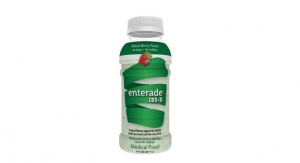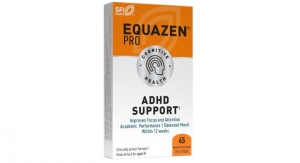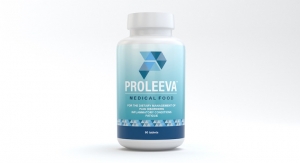Gregory Stephens, RD, Windrose Partners11.01.13
In the last Business Insights column I discussed a renewed convergence of the dietary supplement and pharmaceutical industries. This was a hot hallway topic at several recent conferences. The fact that pharmaceutical and consumer packaged goods (CPG) companies are once again investing in dietary supplement brands is something of a concern to supplement companies. The example often cited is Procter & Gamble’s acquisition of New Chapter. On the other hand, pharmaceutical companies have noted that the medical food business is being encroached upon by supplement companies, which appear anxious to enter this rapidly growing market. Such conversations are not new; the names and regulatory categories change but competiveness is a mainstay of our industry.
There are several factors driving medical foods into the spotlight. Globally, it is a rapidly growing multibillion-dollar market. Secondly, through guidance documents and enforcement actions, FDA is beginning to raise concern about the viability of the market.
FDA Enforcement Actions
There has been much discussion over the past year about FDA tightening down on structure-function claims. A good example is the recent FDA enforcement activity around inflammation related claims. Sometimes out of frustration, dietary supplement company executives have suggested that going the medical food route may open new doors not accessible to dietary supplements. Not only can medical foods make “disease management” label claims, the classification may also elevate the perception of efficacy for their products.
Most people in the industry are now aware of the basic definition of a medical food: Foods that help to manage a disease or condition by meeting the “distinctive nutritional requirements” that the disease or condition creates. For example, FDA pointed out that some inborn errors of metabolism like phenylketonuria (PKU) require considerable modification of the diet to avoid phenylalanine in order to avoid serious medical issues. It is difficult for PKU patients to achieve these dietary modifications, thus the need for medical foods to help manage the condition.
For years the pharmaceutical medical food companies (e.g., Nestle and Abbott Nutrition) have walked a fine line with FDA on medical food requirements, yet not without occasional confrontation. However, over the past few years, supplement companies and start-ups have taken this opportunity to expand the indications for medical foods to a much broader range of diseases. I have commented before that many of these companies seem to be “flying under the FDA radar.” That is, they do not present a significant enough threat to consumers to warrant the FDA’s attention, given their limited resources. Based on the agency’s actions over the past few months, it appears FDA is beginning to pay increasing attention to the category. FDA’s new draft Medical Foods Guidance Document and Q&As, as well as a number of recent warning letters disallowing medical food products, indicate the agency is determined to interpret the definition of medical food narrowly and prohibit the marketing of many novel products that might fit into this category.
Recently, a major supplement company in the practitioner channel received a warning letter from FDA addressing several of its products marketed as medical foods. In the letter, FDA stated, “these products are labeled as ‘medical foods,’ and the labeling claims on your website represent these products as medical foods for the dietary management of a variety of medical conditions.”
Based on the FDA review of the company’s website, it was determined that 14 of its medical food labeled products were misbranded, not meeting the statutory definition. Thus, FDA stated the claims made on these products cause them to be unapproved drugs.
Key to FDA’s action are elements of the statutory definition of medical foods. Specifically, a medical food is “a food which is formulated to be consumed or administered enterally under the supervision of a physician and which is intended for the specific dietary management of a disease or condition for which distinctive nutritional requirements, based on recognized scientific principles, are established by medical evaluation.” Also, a medical food must be intended for a patient who has a limited or impaired capacity to ingest, digest, absorb or metabolize ordinary foodstuffs or certain nutrients, or who has other special medically determined nutrient requirements, the dietary management of which cannot be achieved by modification of the normal diet alone.
The warning letter references the company’s products that target numerous health conditions: chronic fatigue syndrome, fibromyalgia, leaky gut syndrome, metabolic syndrome and cardiovascular disease, inflammatory bowel conditions and/or inflammatory bowel disease, type 2 diabetes, atopic disorders such as eczema, rhinitis and allergy-responsive asthma, pre- and post-operative bariatric patients and peripheral artery disease.
For these conditions, FDA stated it is not aware of any (not all apply to each indication):
Interestingly, for the bariatric product, FDA noted that a patient’s nutritional requirements can be met through dietary modification alone, “which may include use of a daily multi-vitamin.” Here we have the FDA suggesting use of a dietary supplement as a modification to the normal diet.
Additionally, FDA noted the products are not Generally Recognized As Safe (GRAS) and effective for their referenced uses and, therefore, the products are “new drugs,” which cannot be legally introduced without prior approval from FDA. One of the unique differences between medical foods and dietary supplements is that ingredients in a medical food must be GRAS.
FDA Draft Guidance and Q&A on Medical Foods
The recently issued Medical Food Guidance/Q&A document will likely impact the development of these products. The majority of this guidance document appears quite similar to the 1996 “Regulation of Medical Foods: Advance Notice of Proposed Rulemaking (ANPR),” which was subsequently withdrawn by FDA in 2003 due to a “lack of activity, lack of resources, change in priorities”—though the agency stated the opinions expressed are still the same. The new guidance document reflects a renewed focus on this class of foods.
In the most recent guidance document, FDA seems to take direct aim at what is currently the largest indication for medical foods: diabetes. The agency acknowledged there are distinctive nutritional requirements for patients with diabetes, but also stated it does not see type 1 or type 2 diabetes as conditions that require a medical food. FDA pointed out that a regular diet can be modified to meet the needs of patients with either type of diabetes. Certainly, FDA does not consider today’s consumers’ lifestyles, where adhering to a diabetic regimen may be much more realistic with convenient, healthy snacks and meal replacements.
This invites the question: what about legacy products like Boost Glucose Control (Nestle) and Glucerna (Abbott Nutrition)? Both are labeled and marketed at retail with medical food claims. These brands are not small; collectively, estimated retail and institutional sales (e.g., hospitals and nursing homes) exceed $300 million annually in the U.S. alone.
FDA points out that medical foods are necessary for select conditions. PKU being one where modification of the diet can possibly be achieved; however, that would be rather difficult. Where is the line to be drawn? How difficult must modification of the diet be for FDA to consider it appropriate to be a medical food?
What’s Next?
The Medical Food Guidance Document and recent warning letters suggest the category is being looked over closely, and it’s fair to expect more aggressive enforcement action. Still, for decades, very large pharmaceutical companies have invested heavily in research and development and promotion of medical foods.
Thus, contrary to comments I’ve heard, the medical food category is not going away. It serves a valuable need for patients with some very serious health conditions. There are very reputable companies committed to developing new, innovative products in this billion-dollar industry. The challenge will be to continue funding research, including cost-benefit studies, and communicating with health practitioners, government agencies and Congress to protect the interests of patients who benefit from this much needed class of disease-management products.
Save the Date: The Second Annual Health Practitioner Market Forum, April 2-4, 2014, Hotel Maya – Long Beach, CA. Position your company for success in the health practitioner channel and the market for medical foods. Contact: Greg Stephens, 215-860-5186; E-mail: gregstephens@windrosepartners.com; Website: www.HPMForum.com.
Greg Stephens, RD, is president of Windrose Partners, a company serving clients in the the dietary supplement, functional food and natural product industries. Formerly vice president of strategic consulting with The Natural Marketing Institute (NMI) and Vice President of Sales and Marketing for Nurture, Inc (OatVantage), he has 25 years of specialized expertise in the nutritional and pharmaceutical industries. His prior experience includes a progressive series of senior management positions with Abbott Nutrition (Ross Products Division of Abbott Laboratories), including development of global nutrition strategies for disease-specific growth platforms and business development for Abbott’s medical foods portfolio. He can be reached at 215-860-5186; E-mail: gregstephens@windrosepartners.com.
There are several factors driving medical foods into the spotlight. Globally, it is a rapidly growing multibillion-dollar market. Secondly, through guidance documents and enforcement actions, FDA is beginning to raise concern about the viability of the market.
FDA Enforcement Actions
There has been much discussion over the past year about FDA tightening down on structure-function claims. A good example is the recent FDA enforcement activity around inflammation related claims. Sometimes out of frustration, dietary supplement company executives have suggested that going the medical food route may open new doors not accessible to dietary supplements. Not only can medical foods make “disease management” label claims, the classification may also elevate the perception of efficacy for their products.
Most people in the industry are now aware of the basic definition of a medical food: Foods that help to manage a disease or condition by meeting the “distinctive nutritional requirements” that the disease or condition creates. For example, FDA pointed out that some inborn errors of metabolism like phenylketonuria (PKU) require considerable modification of the diet to avoid phenylalanine in order to avoid serious medical issues. It is difficult for PKU patients to achieve these dietary modifications, thus the need for medical foods to help manage the condition.
For years the pharmaceutical medical food companies (e.g., Nestle and Abbott Nutrition) have walked a fine line with FDA on medical food requirements, yet not without occasional confrontation. However, over the past few years, supplement companies and start-ups have taken this opportunity to expand the indications for medical foods to a much broader range of diseases. I have commented before that many of these companies seem to be “flying under the FDA radar.” That is, they do not present a significant enough threat to consumers to warrant the FDA’s attention, given their limited resources. Based on the agency’s actions over the past few months, it appears FDA is beginning to pay increasing attention to the category. FDA’s new draft Medical Foods Guidance Document and Q&As, as well as a number of recent warning letters disallowing medical food products, indicate the agency is determined to interpret the definition of medical food narrowly and prohibit the marketing of many novel products that might fit into this category.
Recently, a major supplement company in the practitioner channel received a warning letter from FDA addressing several of its products marketed as medical foods. In the letter, FDA stated, “these products are labeled as ‘medical foods,’ and the labeling claims on your website represent these products as medical foods for the dietary management of a variety of medical conditions.”
Based on the FDA review of the company’s website, it was determined that 14 of its medical food labeled products were misbranded, not meeting the statutory definition. Thus, FDA stated the claims made on these products cause them to be unapproved drugs.
Key to FDA’s action are elements of the statutory definition of medical foods. Specifically, a medical food is “a food which is formulated to be consumed or administered enterally under the supervision of a physician and which is intended for the specific dietary management of a disease or condition for which distinctive nutritional requirements, based on recognized scientific principles, are established by medical evaluation.” Also, a medical food must be intended for a patient who has a limited or impaired capacity to ingest, digest, absorb or metabolize ordinary foodstuffs or certain nutrients, or who has other special medically determined nutrient requirements, the dietary management of which cannot be achieved by modification of the normal diet alone.
The warning letter references the company’s products that target numerous health conditions: chronic fatigue syndrome, fibromyalgia, leaky gut syndrome, metabolic syndrome and cardiovascular disease, inflammatory bowel conditions and/or inflammatory bowel disease, type 2 diabetes, atopic disorders such as eczema, rhinitis and allergy-responsive asthma, pre- and post-operative bariatric patients and peripheral artery disease.
For these conditions, FDA stated it is not aware of any (not all apply to each indication):
- Evidence that patients with these conditions have a limited or impaired capacity to ingest, digest, absorb or metabolize any specific nutrients;
- Distinctive nutritional requirement for patients with these conditions…that cannot be met through dietary modification alone.
Interestingly, for the bariatric product, FDA noted that a patient’s nutritional requirements can be met through dietary modification alone, “which may include use of a daily multi-vitamin.” Here we have the FDA suggesting use of a dietary supplement as a modification to the normal diet.
Additionally, FDA noted the products are not Generally Recognized As Safe (GRAS) and effective for their referenced uses and, therefore, the products are “new drugs,” which cannot be legally introduced without prior approval from FDA. One of the unique differences between medical foods and dietary supplements is that ingredients in a medical food must be GRAS.
FDA Draft Guidance and Q&A on Medical Foods
The recently issued Medical Food Guidance/Q&A document will likely impact the development of these products. The majority of this guidance document appears quite similar to the 1996 “Regulation of Medical Foods: Advance Notice of Proposed Rulemaking (ANPR),” which was subsequently withdrawn by FDA in 2003 due to a “lack of activity, lack of resources, change in priorities”—though the agency stated the opinions expressed are still the same. The new guidance document reflects a renewed focus on this class of foods.
In the most recent guidance document, FDA seems to take direct aim at what is currently the largest indication for medical foods: diabetes. The agency acknowledged there are distinctive nutritional requirements for patients with diabetes, but also stated it does not see type 1 or type 2 diabetes as conditions that require a medical food. FDA pointed out that a regular diet can be modified to meet the needs of patients with either type of diabetes. Certainly, FDA does not consider today’s consumers’ lifestyles, where adhering to a diabetic regimen may be much more realistic with convenient, healthy snacks and meal replacements.
This invites the question: what about legacy products like Boost Glucose Control (Nestle) and Glucerna (Abbott Nutrition)? Both are labeled and marketed at retail with medical food claims. These brands are not small; collectively, estimated retail and institutional sales (e.g., hospitals and nursing homes) exceed $300 million annually in the U.S. alone.
FDA points out that medical foods are necessary for select conditions. PKU being one where modification of the diet can possibly be achieved; however, that would be rather difficult. Where is the line to be drawn? How difficult must modification of the diet be for FDA to consider it appropriate to be a medical food?
What’s Next?
The Medical Food Guidance Document and recent warning letters suggest the category is being looked over closely, and it’s fair to expect more aggressive enforcement action. Still, for decades, very large pharmaceutical companies have invested heavily in research and development and promotion of medical foods.
Thus, contrary to comments I’ve heard, the medical food category is not going away. It serves a valuable need for patients with some very serious health conditions. There are very reputable companies committed to developing new, innovative products in this billion-dollar industry. The challenge will be to continue funding research, including cost-benefit studies, and communicating with health practitioners, government agencies and Congress to protect the interests of patients who benefit from this much needed class of disease-management products.
Save the Date: The Second Annual Health Practitioner Market Forum, April 2-4, 2014, Hotel Maya – Long Beach, CA. Position your company for success in the health practitioner channel and the market for medical foods. Contact: Greg Stephens, 215-860-5186; E-mail: gregstephens@windrosepartners.com; Website: www.HPMForum.com.
Greg Stephens, RD, is president of Windrose Partners, a company serving clients in the the dietary supplement, functional food and natural product industries. Formerly vice president of strategic consulting with The Natural Marketing Institute (NMI) and Vice President of Sales and Marketing for Nurture, Inc (OatVantage), he has 25 years of specialized expertise in the nutritional and pharmaceutical industries. His prior experience includes a progressive series of senior management positions with Abbott Nutrition (Ross Products Division of Abbott Laboratories), including development of global nutrition strategies for disease-specific growth platforms and business development for Abbott’s medical foods portfolio. He can be reached at 215-860-5186; E-mail: gregstephens@windrosepartners.com.




























